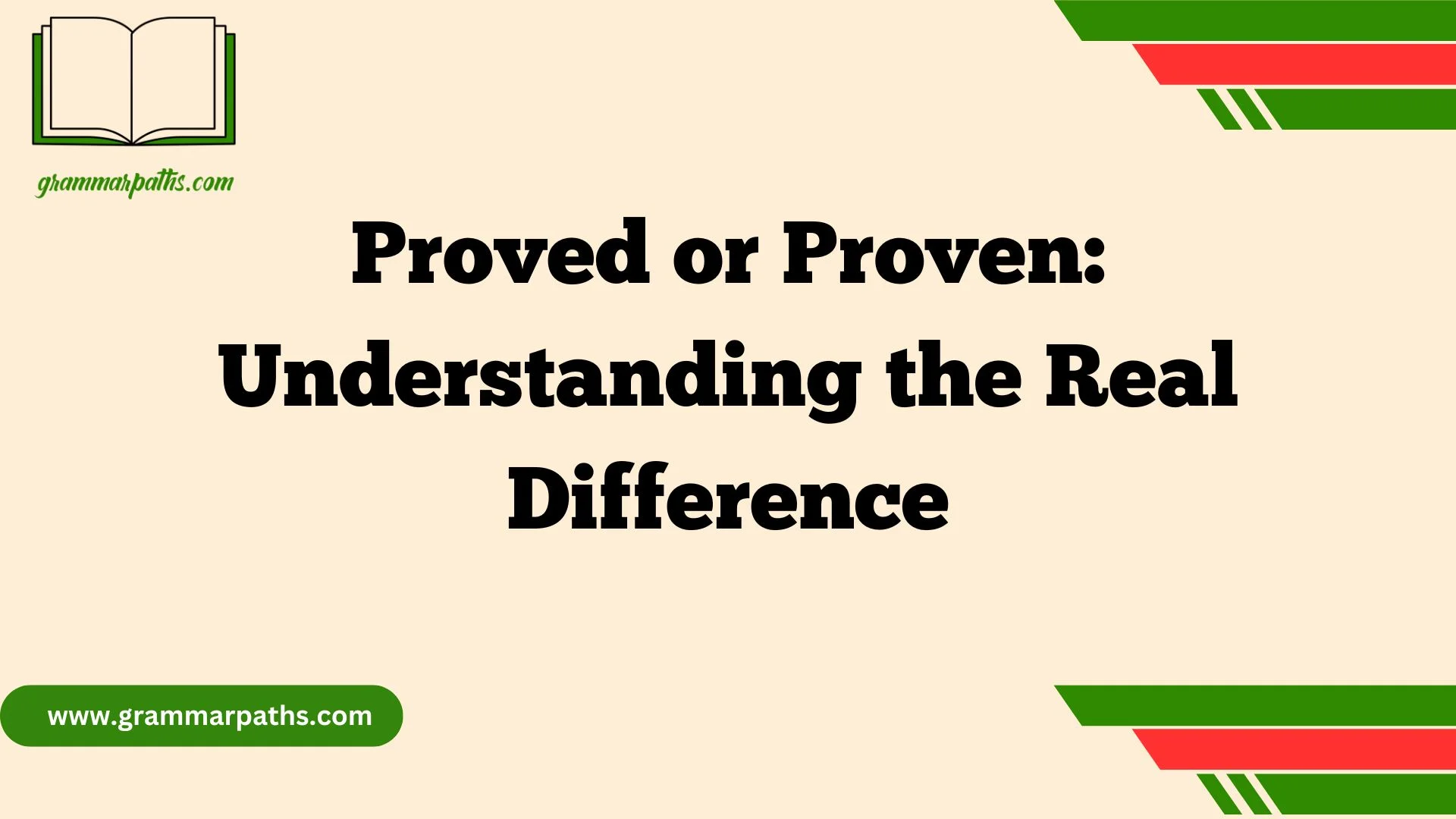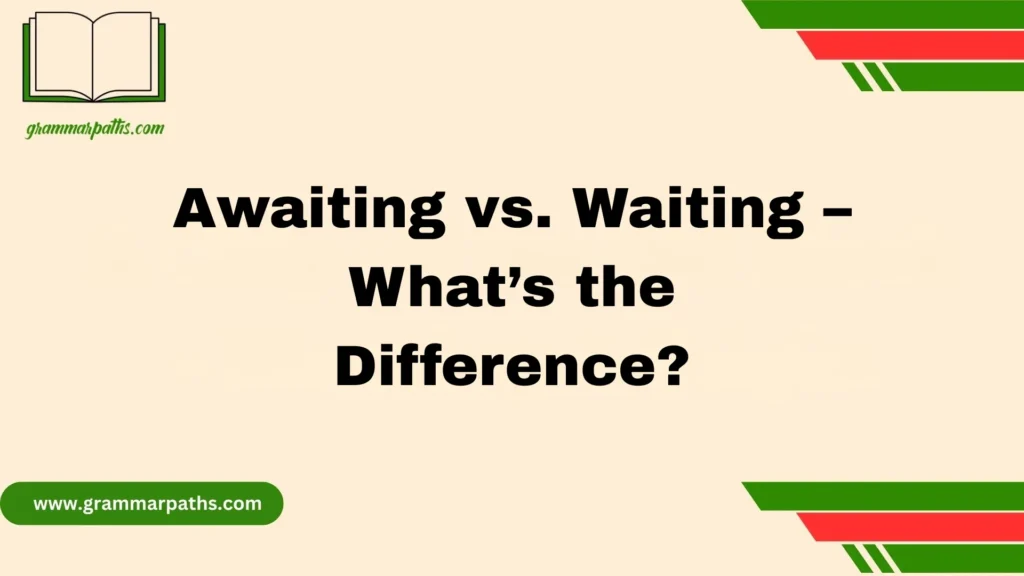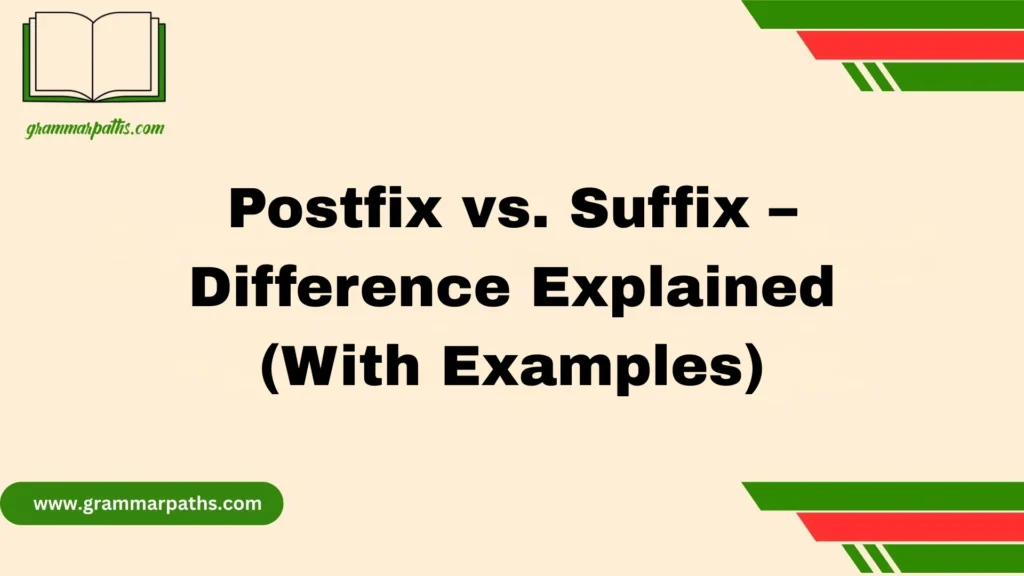Many people get confused between “proved” or “proven”, especially when writing in English. Both are the past participles of “prove”, but they’re used slightly differently. “Proved” is the older and more traditional form, often used in British English. Example: She has proved her point. Meanwhile, “proven” is more common in American English and often sounds a bit more formal or technical, as in: It has been proven effective in trials.
So, when should you use which? Both are grammatically correct, but consistency matters. If you’re writing for a scientific or legal audience, “proven” is usually preferred. In more general writing, “proved” may feel more natural. The key is to pick one and stick to it based on your audience. Knowing the subtle difference boosts your clarity, grammar confidence, and helps you sound more professional.
What Does “Prove” Mean?
To prove means to demonstrate the truth of something. It’s about showing evidence, offering verification, or confirming a fact. Though simple in meaning, its past forms—proved and proven—are where confusion often arises.
Key Points
- Prove: present tense
- Proved: simple past
- Proven: past participle (and occasionally adjective)
The irregular pattern echoes verbs like show, grow, and throw, and questions around participles are quite common.
Quick Answer: Proved vs. Proven
| Form | Role | Example |
| proved | Simple past tense | “She proved her point in the meeting.” |
| proven | Past participle or adjective | “This method has proven effective.”“He’s a proven leader.” |
Simple past → “proved”- Past participle after have/has/had → usually “proven”
- Proven can be an adjective, as in “a proven method”
Want a one-sentence rule?
Use proved for past actions, proven after helping verbs or when describing something validated over time.
Grammar Rules Behind the Forms
1. Simple Past: Proved
Used for completed actions in the past:
- “He proved the theorem yesterday.”
- “They proved it wasn’t true.”
2. Past Participle: Proven / Proved
This form pairs with have/has/had to link past actions to the present:
Common: “Our strategy has proven successful.”
Less common but acceptable: “Our strategy has proved successful.”
3. Adjective Use: Proven
English often pairs past participles with adjectives, as in:
- “a proven strategy”
- “proven track record”
You wouldn’t say “a proved strategy.”
Is “Proven” Incorrect?
Definitely not! Both proved and proven are valid—but context matters:
- Proved wins when referring to finished actions.
- Proven suits participles and adjectives.
Style matters too. In formal writing, proved holds strong for past use, while proven sounds best after helping verbs or as an adjective. Still, you’ll see both across print and digital media.
Usage Examples: Side-by-Side Table
| Sentence | Correct Form | Notes |
| He ____ his claim in court. | proved | Completed past action |
| This formula has ____ effective. | proven | Past participle with “has” |
| They had ____ their loyalty by then. | proved | Past perfect |
| She’s a ____ leader. | proven | Adjective |
| It ____ harder than we thought. | proved or proven | Both accepted |
In everyday speech, you’ll hear both partly out of habit or regional preference.
Legal & Scientific Usage
Legal Writing
In law, “proven guilty” is the standard. Courts demand evidence before declaring guilt—hence “proven.” You’re more likely to see “The defendant was proven guilty” in legal documents than “proved guilty.”
Scientific Context
Scientists might write:
- “The experiment proved the hypothesis.”
- “The data has proven inconclusive.”
Generally, the structure (past tense vs. participle) guides the choice, not strict rules.
British vs. American English
- American English prefers proven for past participles and adjectives.
- Example: “This method has been proven efficient.”
- Example: “This method has been proven efficient.”
- British English often leans toward proved in both roles.
- Example: “They have proved that theory.”
- Example: “They have proved that theory.”
Corpus studies (e.g., COCA, BNC) confirm these trends. So if writing for a regional audience, a slight tweak may help readability.
What Dictionaries and Style Guides Say
- Oxford English Dictionary acknowledges both forms as past participles, with “proven” used adjectivally.
- Merriam-Webster marks both “proved” and “proven” as acceptable past participles of “prove.”
- Chicago Manual of Style recommends “proved” for past tense, reserving “proven” for adjectival use.
In practice, you’ll rarely trip style filters if you’re consistent.
Famous Quotes with Each Form
Proven
“A proven habit of saving means you’re halfway to financial freedom.” — Financial Advice
Proved
“He proved himself more brave than the rest.” — Historical Biography
These real-world snippets show both forms in action across different contexts.
Avoid These Common Mistakes
- Using proven as a simple past: “He proven it.”
- Overcorrecting: swapping proved for proven every time—“She has proved successful.” Acceptable
- Ignoring regional preference: Americans understand proved, Brits understand proven.
Quick fix: Check the verb form. If it’s a simple past, go with proved. If it’s around a helping verb or describing something tested over time, use proven.
Decision Guide: Which to Use
Use this checklist to stay on target:
- Is it describing a completed past event? → proved
- Is it following have/has/had? → proven (or proved, but proven works best)
- Is it used as an adjective? → proven
- Are you writing for a specific audience?
- American: lean proven
- British: lean proved
- American: lean proven
When in doubt, check your context, not just your instinct.
Pop Culture, Media & Marketing
- Marketing: “Proven results” lands confidence in five words.
- Journalism: Articles use both forms depending on tone:
- “Researchers have proven the link.”
- “He proved the math behind it.”
- “Researchers have proven the link.”
Brands love “proven”—it sounds assertive and backed by evidence.
Summary: Proved vs. Proven
Both words trace back to prove but serve different functions:
- Proved → simple past: “She proved them wrong.”
- Proven → past participle with helping verbs OR adjective: “This fact is proven.”
Memorize this distinction—drive it home with your writing—even if your audience won’t notice consciously, they’ll sense the precision.
FAQs:
Is it proven or proved my point?
The correct phrase is “proved my point.” The verb prove is typically used in the simple past tense as “proved.” “Proven” is usually an adjective or used in perfect tenses like “has proven.”
Is it proven fact or proved fact?
“Proven fact” is the more common and grammatically accepted phrase. “Proven” functions as an adjective here, describing a fact that has been verified or confirmed.
What is the difference between proved and proven in math?
In mathematics, “proved” is commonly used as the past tense of prove, while “proven” appears more in formal or academic contexts as a past participle or adjective. Example: “The theorem was proved yesterday” vs. “It is a proven result.”
What is the difference between proof and proven?
“Proof” is a noun, referring to the evidence or argument that establishes a fact. “Proven” is a past participle or adjective, indicating something that has been demonstrated to be true. Example: “The proof is solid” vs. “It is a proven method.”
What is the synonym of proven?
Common synonyms for proven include verified, confirmed, demonstrated, validated, and established. These all convey the idea of something shown to be true or accurate.
Final Thought:
Understanding the difference between “proved” and “proven” is more than just a grammar rule—it’s about choosing the right tone and audience-appropriate language. Both forms are correct, but knowing when and how to use each boosts your writing’s clarity, precision, and professionalism. Whether you’re writing a research paper, email, or legal brief, this subtle choice can make your communication more effective.
So next time you’re unsure, remember: “proved” works in most general cases, while “proven” often adds formality or fits technical contexts better. Pick one based on style, consistency, and region—and you’ll never second-guess this pair again.

Emma Brooke is a passionate language expert and contributor at GrammarPaths.com, where she helps learners navigate the complexities of English grammar, idioms, and effective writing. With a strong academic background and years of teaching experience, Emma excels at turning tricky grammar rules into simple, practical lessons that readers can easily grasp.










